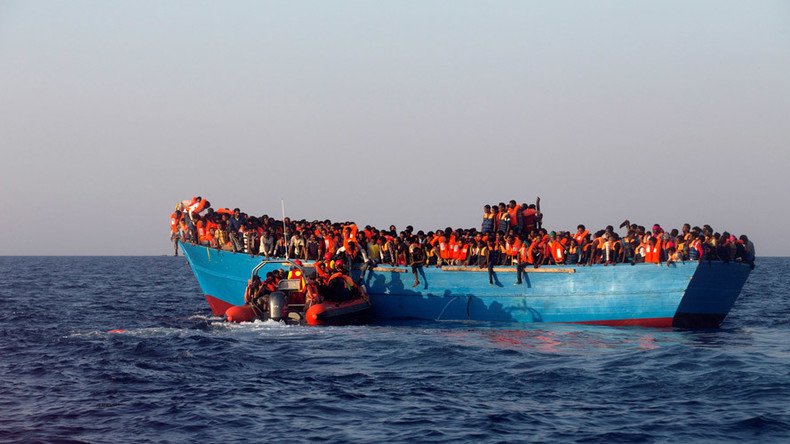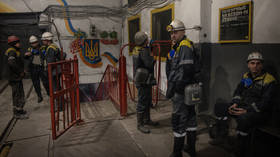235,000 migrants, refugees waiting to leave for Italy will succeed – UN envoy to Libya

There are roughly 235,000 refugees and migrants stranded on Libyan shores who are desperate to continue on to Italy by sea, the UN envoy to Libya said, warning of an imminent new influx to Europe.
Hundreds of thousands of migrants and refugees in Libya are ready to make the dangerous journey across the Mediterranean, UN envoy to Libya Martin Kobler said in an interview with Italian newspaper La Stampa on Thursday.
“We have on our lists 235,000 migrants who are just waiting for a good opportunity to depart for Italy, and they will do it,” Kobler said.
He added that combating terrorism and establishing security in Libya will surely help stem the flow of asylum seekers into Europe, stressing that insecurity goes hand in hand with human trafficking.
“It is crucial to re-establish security in the country to counter the phenomenon of trafficking of human beings that is intertwined with terrorism.”
Over the past months, Libya has become a popular staging point for migrants from North Africa and the Middle East seeking to reach Europe.
Previous media reports suggested that refugees tend to use Libya’s coastline more frequently after the so-called ‘Balkan route’ – the main passageway for migrants spanning between the Aegean and Central Europe – has been closed by the EU’s efforts.
2,750 migrants drowned off the coast of #Libya since Jan 2016. #UN4RefugeesMigrantshttps://t.co/RzRbkIY4Qppic.twitter.com/PJMvtElywu
— Euro-Med Monitor (@EuroMedHR) September 14, 2016
According to the latest UN figures, as of August 24, more than 270,547 migrants entered Europe by sea since the beginning of 2016, and 129,000 of them have landed in Italy.
‘Shockingly large’ number of refugees in Med pushes German Navy to limits – report
Some 3,167 people died or went missing crossing the Mediterranean so far this year, according to official estimates, making the first half of 2016 the deadliest on record. The remarkable statistics far exceed last year’s figure of 1,917 people, despite the total number of people who undertook the journey being four times less this year.














